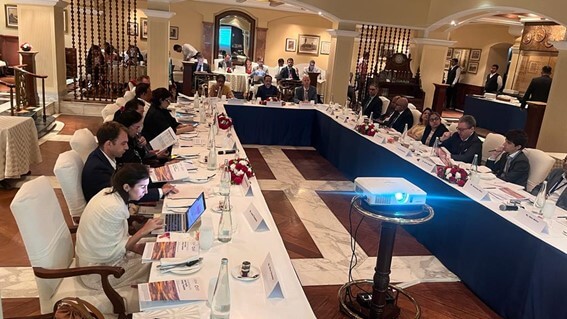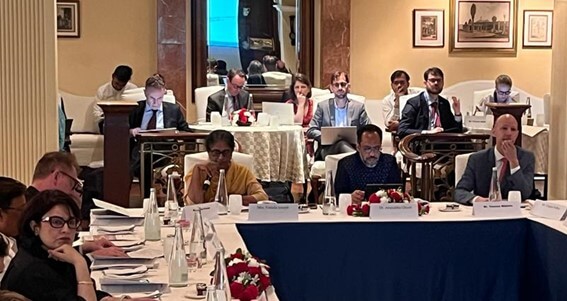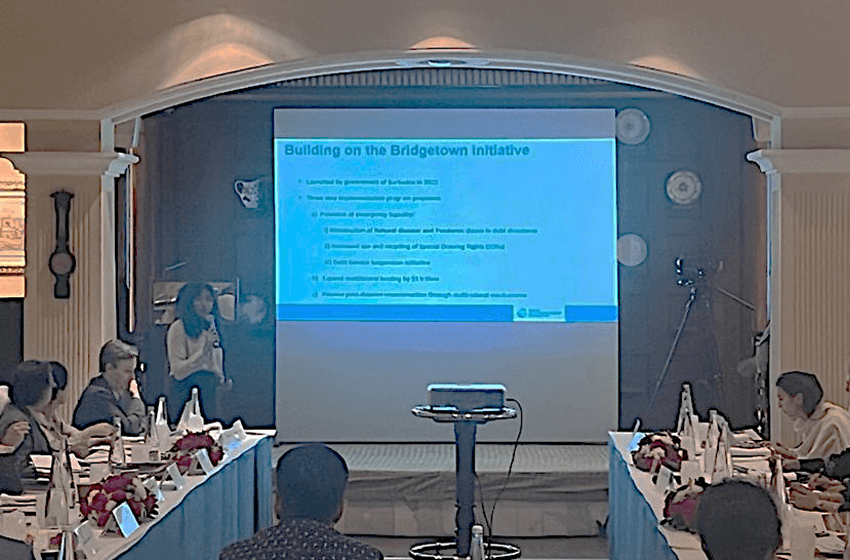
Ahead of the G20 Leaders’ Summit in New Delhi in September 2023 (G20 Summit), and the Summit for a New Global Financial Pact in Paris in June (Paris Summit), Shakti Sustainable Energy Foundation (Shakti), Agence Française de Développement (AFD), and the Council on Energy, Environment and Water (CEEW) held a roundtable discussion on May 18, 2023, to understand expectations and inform policy. The discussion was centred around resilient infrastructure finance and development that relates to sustainable development and SDGs, as well as on climate finance and energy transition that relates to long term development trajectories. This was deliberated upon in the backdrop of various prevalent proposals and discussions on international financial architecture (including ODA reforms, Bridgetown Agenda, MDB reform etc.).

Vatsala Joseph, CEO, Shakti, set the context by highlighting, “Global South currencies are losing to the global currencies and this trend means that their existing debts are costlier to repay and borrowing becomes difficult and most nations in the Global South have a reverse trade deficit in terms imports vs exports. Technology transfer, debt financing at low costs is urgently required with longer durations of repayment. Increased liquidity made available to take those steps will ensure concerted efforts in helping the federal structures in these nations to work on slowing down the impacts of climate change.”
The salient points of the discussions are mentioned below.
The roundtable began with examining investment needs among countries in the Global South, with estimates indicating that emerging economies in Asia would require a substantial investment of 26 trillion dollars for climate-aligned infrastructure. India alone would need around 240 billion dollars by 2040, indicating a financing gap of 140 billion dollars. The private sector’s reluctance to fund projects in South Asia has led banks to step in, but a long-term funding solution remains elusive. To address this issue, the G20 working group is focusing on improving bankability and leveraging resources. The role of large anchor institutions will be crucial in mobilising domestic capital in the Global South, potentially supported through ‘green’ mandates. Institutions such as the National Investment and Infrastructure Fund (NIIF), National Adaptation Fund for Climate Change (NABFiD), and Small Industries Development Bank of India (SIDBI) will play a significant role in India in this context.
While sustainability is a key concern, emphasis is also on enabling developmental goals. Attracting capital to Global South and India will remain a priority, albeit through developmental plans (including climate co-benefits). Institutions such as NIIF are attempting to integrate climate considerations into their planned investments, focusing on building disaster-proof assets (i.e., ‘building back better’). However, this will require additional capital and long-term borrowing, which can be complicated with rising exchange rates.
It is worth noting that resilience has not been a primary focus for international capital flows, as the international community has largely prioritised production technology over consumption. However, countries in the Global South, particularly South Asia, face significant vulnerability to climate change. A discussion paper by the Reserve Bank of India (RBI), revealed that a majority of disaster-related damages in India were uninsured. Achieving resilience would require addressing nature, assets, and people, and its formulation would need to be region-specific. The non-monetisable nature of many resilience projects makes it difficult to attract private sector capital, necessitating the need for public-private partnership (PPP) models or support from development finance institutions (DFIs). This requires a degree of translatability between country-specific resilience taxonomy and global frameworks. Organisations like the Japan International Cooperation Agency (JICA) have already implemented the Sendai Framework and Quality

The summit was aimed at pushing for the implementation of existing finance commitments from developed countries, potentially leading to increased capital flow through proposals on capitalising Special Drawing Rights (SDRs), which may be crucial for resilience efforts in Global South countries. Capacity constraints is also a barrier to accessing capital, and India is actively seeking to enhance knowledge acquisition and build capacity within the banking ecosystem to better understand and address climate risks. Although some funds have been available, scaling up and replicating successful models have been challenging which was another key area for the discussions.
